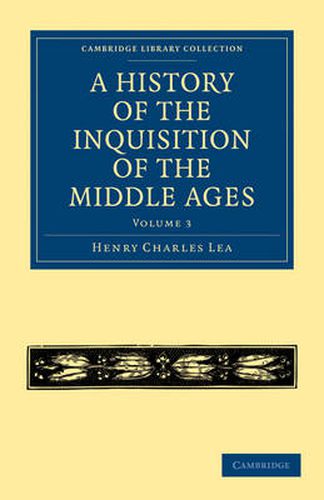Readings Newsletter
Become a Readings Member to make your shopping experience even easier.
Sign in or sign up for free!
You’re not far away from qualifying for FREE standard shipping within Australia
You’ve qualified for FREE standard shipping within Australia
The cart is loading…






This comprehensive three-volume history of the medieval Inquisition by the influential American scholar Henry Charles Lea, first published in 1888, was firmly based on primary sources, and adopted a rationalist approach that departed from the pious tone of earlier histories of the middle ages. Lea was convinced that the Inquisition was not arbitrarily devised and implemented but was an inevitable consequence of forces that were dominant in thirteenth-century Christian society. In Volume 3 Lea focuses on particular aspects of the Inquisition. He considers the impact of the Inquisition on scholarship and intellectual life and on faith and culture, and describes how movements including the Franciscans and the Fraticelli gained prominence. He shows how the concept of political heresy was used by the Church and the State, and argues that belief in sorcery and witchcraft in the fourteenth and fifteenth centuries was stimulated by the Church authorities.
$9.00 standard shipping within Australia
FREE standard shipping within Australia for orders over $100.00
Express & International shipping calculated at checkout
This comprehensive three-volume history of the medieval Inquisition by the influential American scholar Henry Charles Lea, first published in 1888, was firmly based on primary sources, and adopted a rationalist approach that departed from the pious tone of earlier histories of the middle ages. Lea was convinced that the Inquisition was not arbitrarily devised and implemented but was an inevitable consequence of forces that were dominant in thirteenth-century Christian society. In Volume 3 Lea focuses on particular aspects of the Inquisition. He considers the impact of the Inquisition on scholarship and intellectual life and on faith and culture, and describes how movements including the Franciscans and the Fraticelli gained prominence. He shows how the concept of political heresy was used by the Church and the State, and argues that belief in sorcery and witchcraft in the fourteenth and fifteenth centuries was stimulated by the Church authorities.